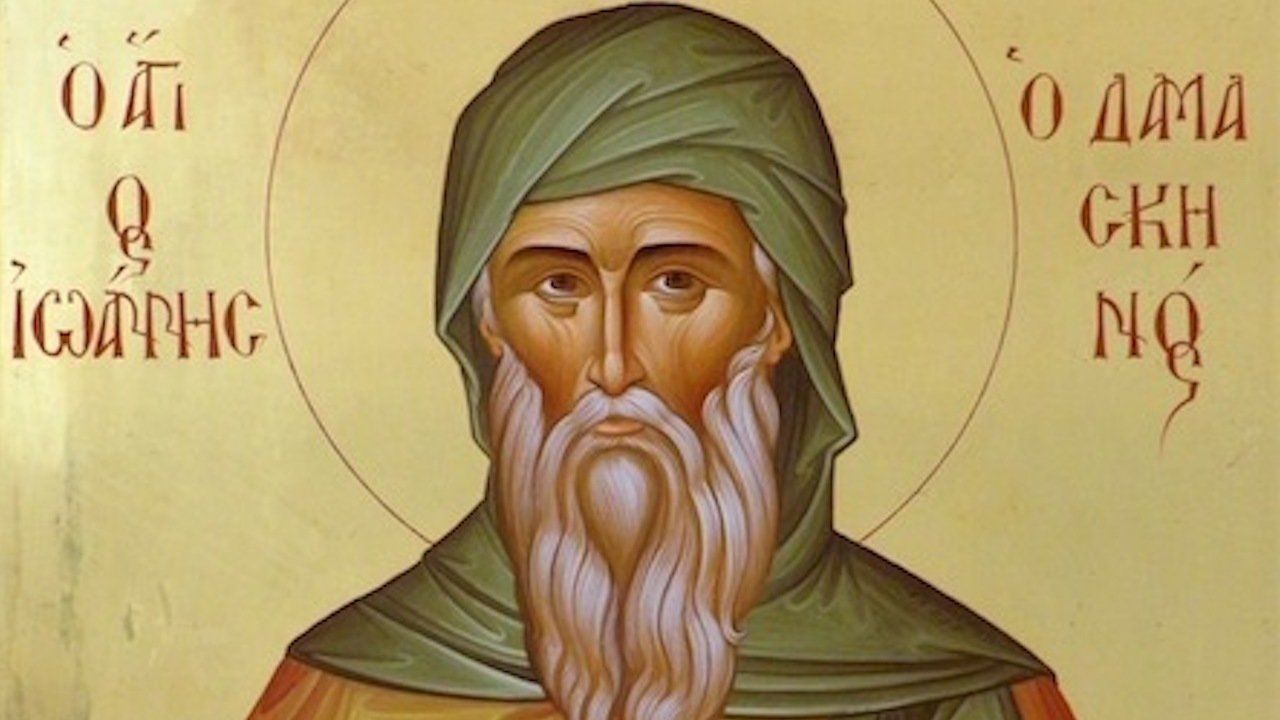Sin
by St John of Damscus
Feast of Sts Manuel, Sabel, & Ishmael the Martyrs of Persia
Anno Domini 2022, June 17

94. Why God created those whom he foreknew would sin and not repent
God in His goodness brings what exists out of non-being into being and has foreknowledge of what will happen. If, then, they were not going to exist, they were neither going to be evil, nor would they be foreknown to be evil. For knowledge is of what exists, and foreknowledge is necessarily of what is going to exist. For existence comes first and then being either good or evil. but if those who were going to exist through God’s goodness were prevented from coming into existence because they were going to be evil through their own deliberate choice, then evil would have prevailed over God’s goodness. Everything that God makes He most certainly makes as good. Each of us becomes good or evil by our own deliberate choice. Even if the Lord said: “It would have been better for that one not to have been born” (Matt. 26:24), He did not say it in disparagement of His own creation but because evil had happened to His creature through that creature’s own deliberate choice and indolence. For the creature made the Creator’s benefaction useless to itself through the indolence of its own will. It is as if someone who had been entrusted with wealth and authority by a king were to rebel against his benefactor. He would rightly be overpowered and punished if the king saw that he was persisting in his rebellion to the end.
95. On the law of God and the law of sin
The divine is good and supremely good, as is also its will. For what is good is what God wills. A law (nomos) is the commandment that teaches this, that by abiding in it we may be in light. The transgression of this commandment is sin. The latter is brought about through the assault of the devil and our own unforced and voluntary consent. This too is called a law.
Therefore when the law of God enters our mind it draws it towards itself and pricks our conscience. Our own conscience is also called a law of our mind. Moreover, the assault of the evil one, that is to say, the law of sin, enters the members of our flesh and attacks us through it. For once we have voluntarily transgressed the law of God and have consented to the assault of the evil one, we have allowed it entry, having sold ourselves to sin. Hence our body is easily induced to sin. And so the scent and sensation of sin stored up in our body, that is to say, the body’s desire and pleasure, is also called a law in the members of our flesh.
Thus on the one hand the law of my mind, that is to say, my conscience, is in harmony with the law of God, that is to say, the commandment, and desires it. But on the other hand, the law of sin, which is to say, the assault that comes about through the law that is in my members, which is to say, the desire and inclination and movement of the irrational part of the soul, fights against the law of my mind, that is to say, my conscience, and takes me prisoner, even though I desire the law of God and love it and do not desire sin, and by a blending, through the softness of pleasure and the desire of the body and the irrational part of the soul, as I have said, leads me astray and persuades me to become a slave to sin. But “God has done what the law, weakened by the flesh, could not do: by sending His own Son in the likeness of sinful flesh” (for He assumed flesh but in no way did He assume sin) “He condemned sin in the flesh, so that the just requirement of the law might be fulfilled in those who walk not according to the felsh but according to the Spirit” (Rom. 8:3-4). For “the Spirit helps us in our weakness” (Rom. 8:26) and gives strength to the law of our mind against the law that is in our members. For the text, “we do not know how to pray as we ought, but the Spirit itself intercedes for us with sighs too deep for words” (Rom. 8:26), teaches us what we should pray for. In consequence, it is impossible to fulfill God’s commandments except through patience and prayer.
*St. John of Damascus, An Exact Exposition of the Orthodox Faith, Chs. 94-95, translated by Norman Russell (Yonkers, NY: St Vladimir’s Seminary Press, 2022), pp. 277-279.
Contribute to Cultural Renewal by Sharing on Your Preferred Platform
In an isolating secularized culture where the Church's voice is muffled through her many divisions, Christians need all the help they can get to strengthen their faith in God and love toward their neighbor. Eighth Day Institute offers hope to all Christians through our adherence to the Nicene faith, our ecumenical dialogues of love and truth, and our many events and publications to strengthen faith, grow in wisdom, and foster Christian friendships of love. Will you join us in our efforts to renew soul & city? Donate today and join the community of Eighth Day Members who are working together to renew culture through faith & learning.









